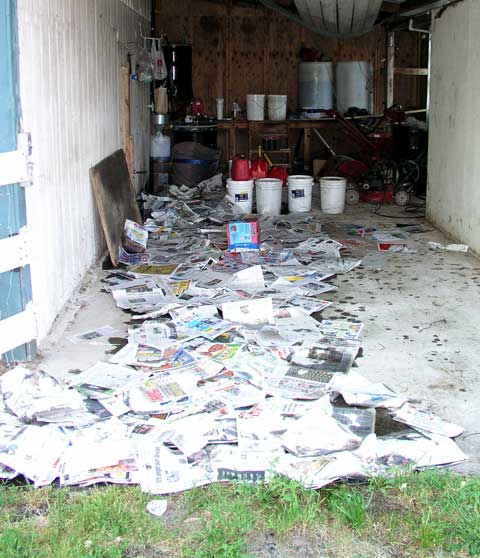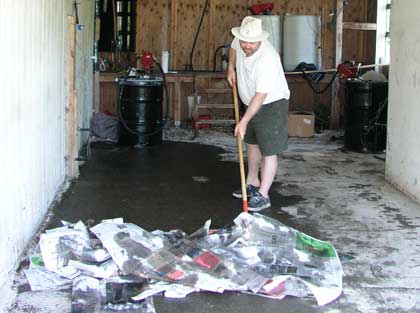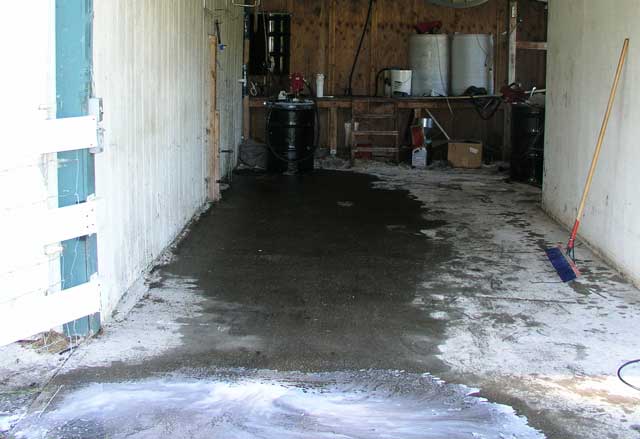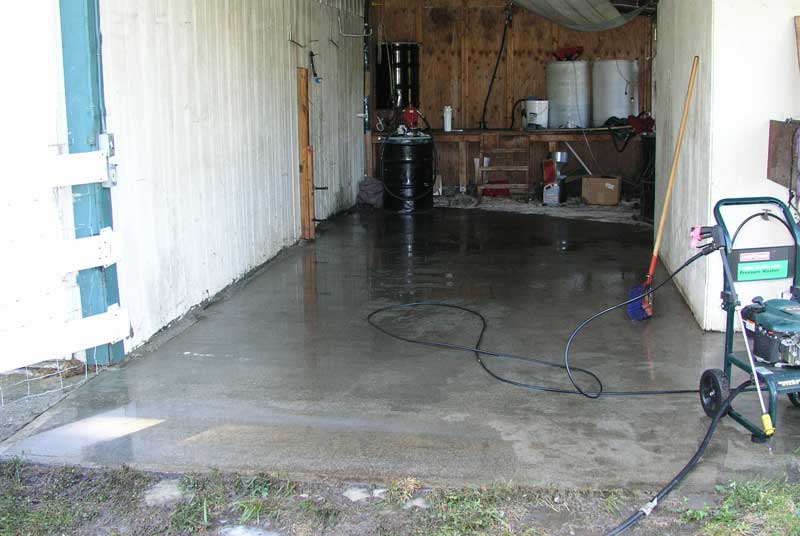A few weeks ago I contacted the organizer of the 4th of July Parade here in Arlington and asked if they needed an old car. The parade here is a fun little affair, with old cars, tractors, business vehicles, the high school marching band, etc. We’ve always gone and watched, and had a great time. Neighbors always told me I should put my car in, so I called. The organizer asked “Is it a convertible? I need convertibles to carry people” and when I replied affirmatively she said “Yes, you’re my hero! I need a convertible to carry the Police Chief.” I confirmed with her the start time & place, washed the car that morning, and headed into Arlington for the big day.
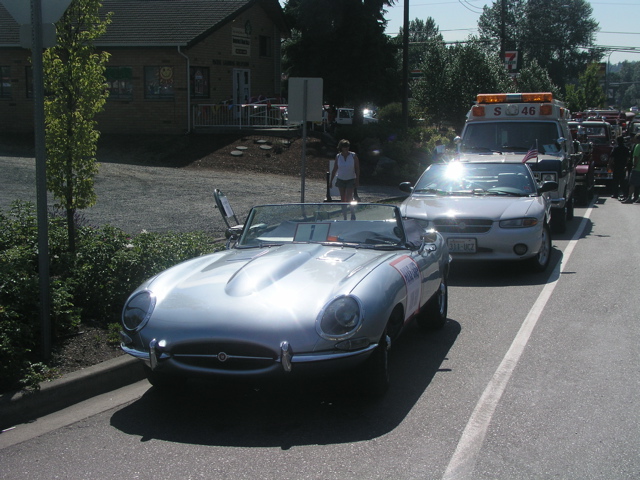
When I arrived I was told that my position was #1, which meant I’d be leading the parade. Very cool. I was given a pair of large magnets with the Police Chief’s name and title on them, and told where to line up. Then it was just a matter of waiting. Thankfully I had left the tonneau cover on the car and was able to put it on to keep the interior cool in the hot sun. The Arlington Fire Department lined up behind me, including an beautiful antique fire engine. I had a look at the engine’s engine… a unique machine. It was a flathead straight six, with two plugs per cylinder. I took a photo, which I’ll link to later. As parade time approached, more participants lined up, and I noted another Jaguar, in this case an XK8 lined up opposite me.
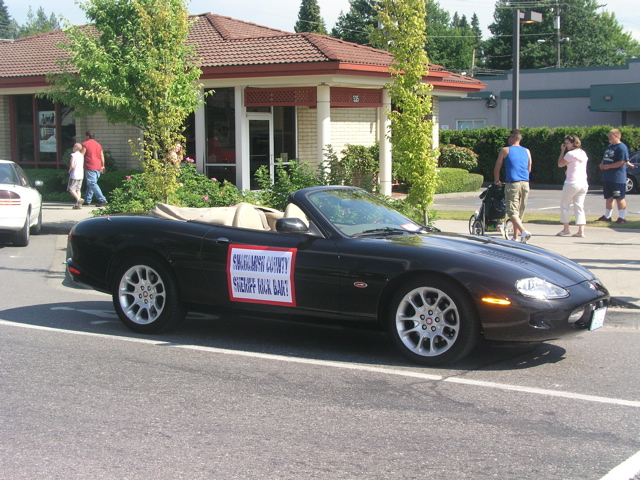
How symmetrical. Two open topped Jaguars, each carrying a “top cop” in my case the Arlington Police Chief, in the other the Snohomish County Sheriff. That’s cool.
BUT. My dignitary had yet to arrive! Literally as the moment arrived to start the parade, (The Color Guard had lined up right behind my car and raised the flag) the organizer came up to me and told me that the Police Chief was not going to ride in my car, but would instead ride in a patrol car. Her walkie- talkie was going like mad, and I was not able to ask what I was supposed to do (drive along behind him? go to the back of the line? carry the Dairy Princess? go home?) A cop came along and took the signs off my car. So here I was, at the head of the line, stripped of my “parade gear” and left with no instruction. I hopped out of my car and ran after the parade organizer, but she already was climbing into her truck, still talking on the walkie-talkie, and pulled away.
I climbed back into the Jag and told the Color Guard to be careful of the exhaust, and fired it up and pulled away, and found a spot at the back of the parade lineup. I ran up and found my family and offered the passenger spot to my boys, which Nicholas gladly accepted. He really wanted to throw candy to his friends – I had bought 3 pounds of smarties at the Food Pavilion for the purpose. By the time we got back to the car the Parade was progressing and we only had a few minutes to chat with the guys from the Stilly Valley Pioneer Museum who we were parked behind. They had two old Fords, a Model A and Model T, out for the parade. The guy in the Model T lives near me and owns a couple of really old Rolls Royce’s, so he had an appreciation for old British six cylinder machinery.
So as we pulled away, and followed the Fords, Nicholas prepared to start slinging Smarties. We pulled inline and started down Olympic Avenue. I was primarily concerned with not abusing my clutch, and staying an even distance behind the Fords. As such I didn’t have too much time to relish the experience. I was able to throw some candy to kids who looked like they needed/wanted it – including my wife, who caught the candy I flung at her with a smile. Nick was able to wave to his friends, and throw way too much candy out… in fact he ran out about halfway down Olympic avenue! Should we ever participate again he’ll have to pace himself.

They had an announcer on a loudspeaker calling out what was in the parade, as we passed there was silence. We were out of order due to the last minute change with the Police Chief, which obviously confused things. I did have at least FOUR people walk away from the curb and ask me about the car, plus innumerable “nice car!” shouts from folks who stayed on the curb. I answered the questions, and said “thank you” to all the compliments. I’m indeed lucky to be the caretaker of such a nice machine.
It was all over, way too soon. The car did well, never looked like it would overheat or stall.
Nick & I went home, enjoying the ride. After our arrival, I went to work at replacing the front plate that had been removed from the car after the incident with the pickup truck. The repair of which removed the plate from the car.

It was a fun job. I hadn’t done any wet burnishing in a while. You can see if you look closely, that I used fishing line as a guide to make sure I lined up the plate level. I built a grid by tying down the line at various places on the car, then misted and placed the plate down. After it was down, I noted that it was just a bit higher than it was before… oh well. Next I’ll put the numbers on.
All my pictures from the day are here.
